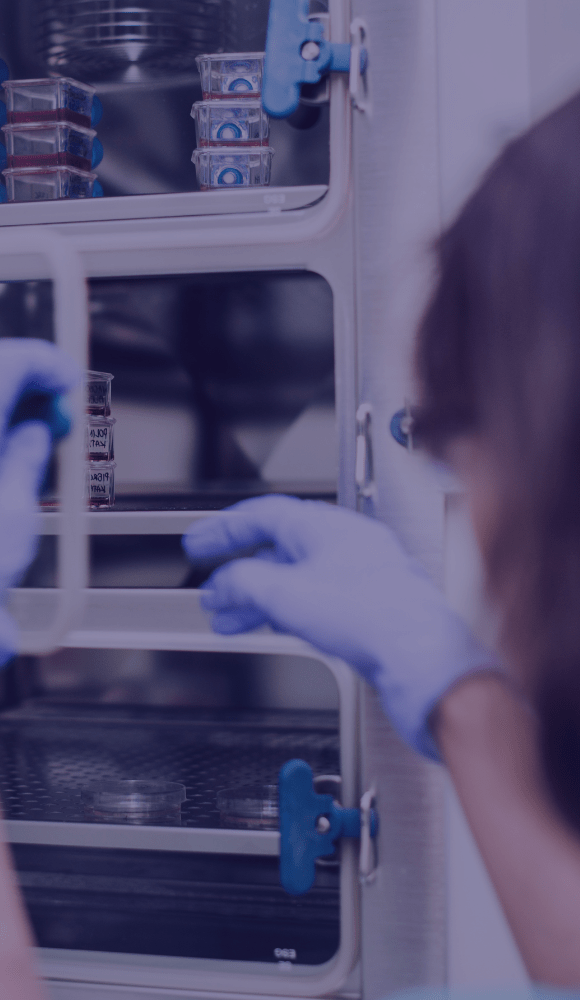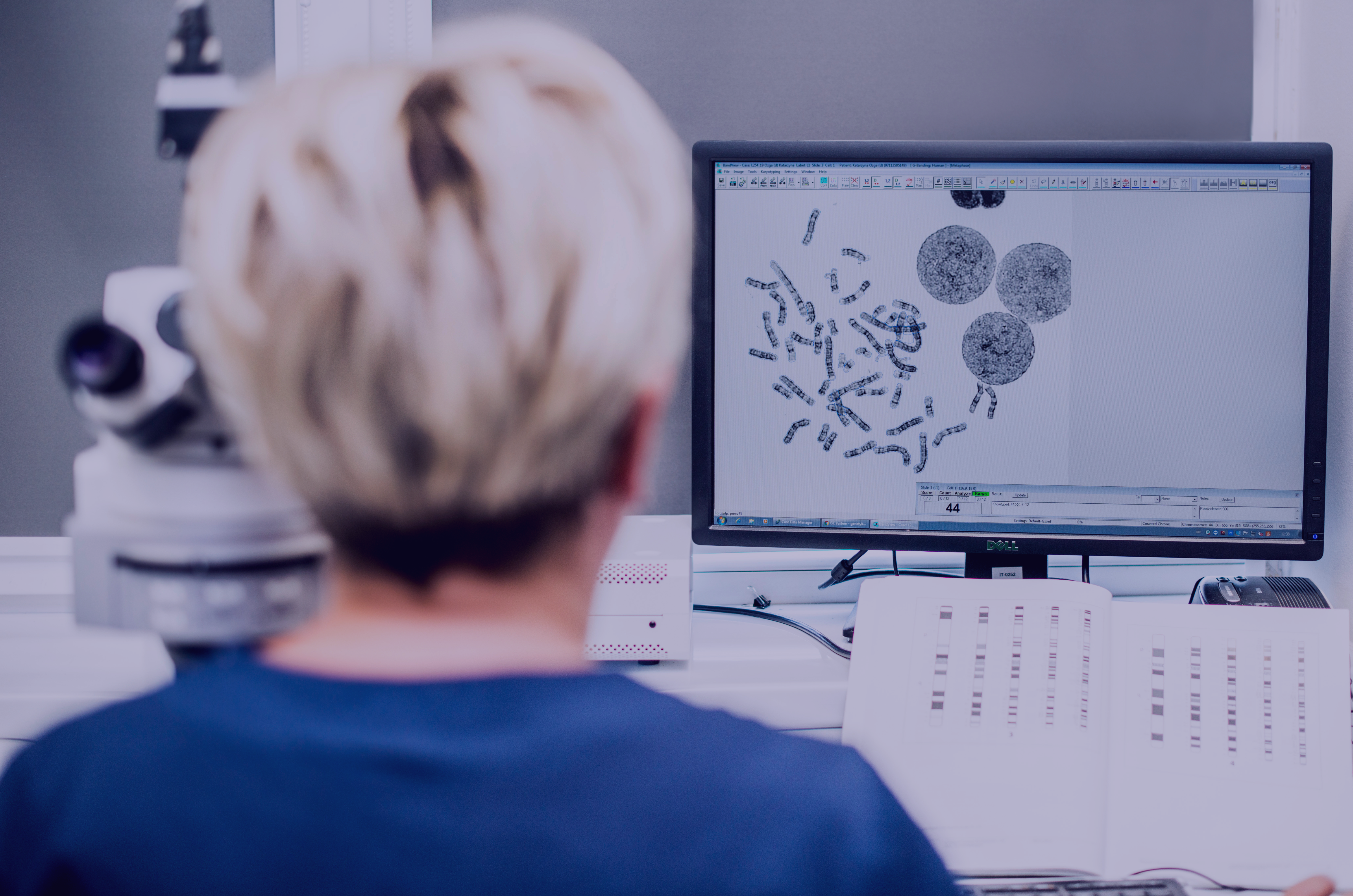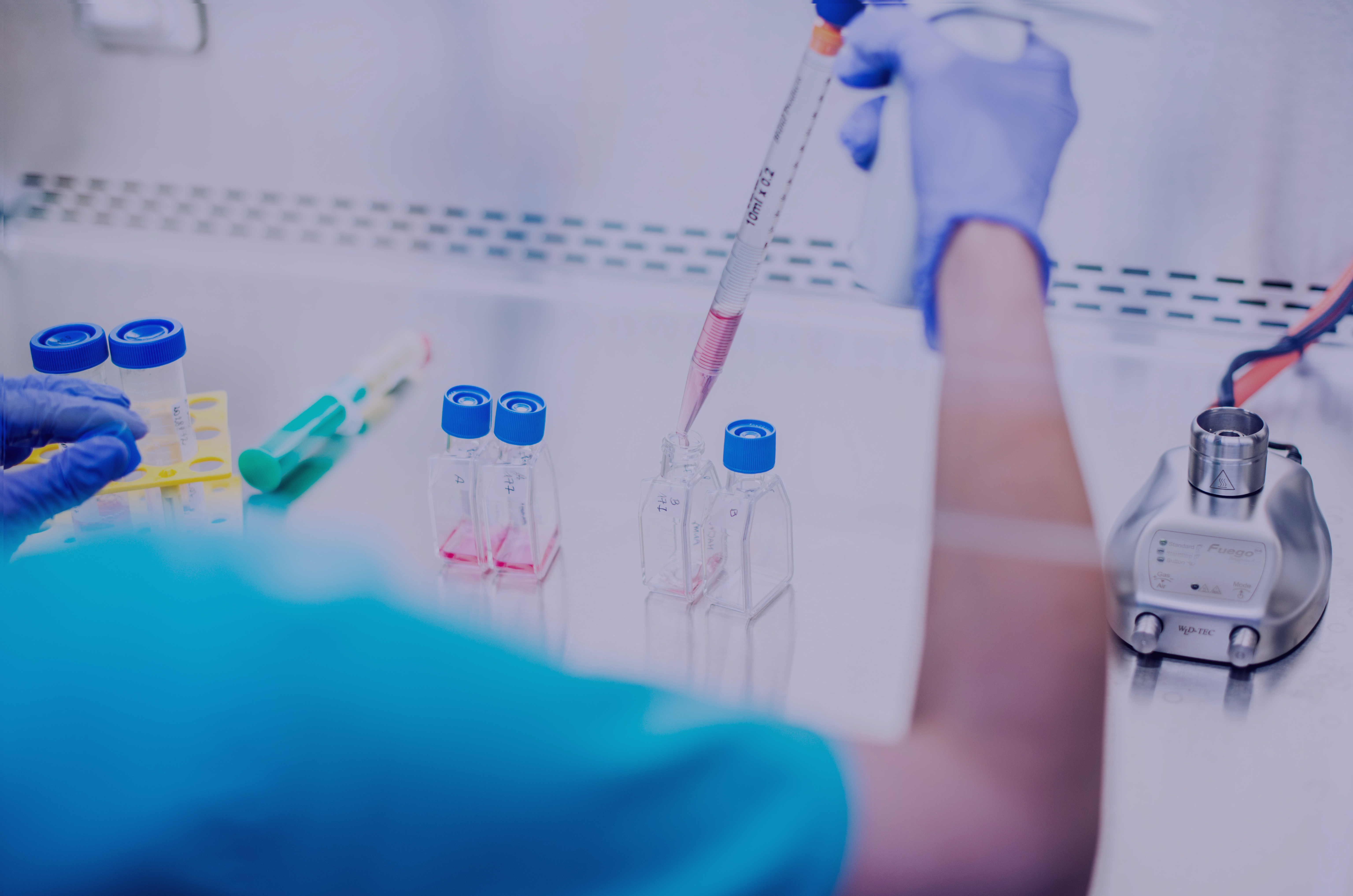We detect chromosome abnormalities that can cause infertility and habitual miscarriages.


Karyotype testing

To whom is karyotype testing recommended?
Karyotype testing is particularly recommended for couples:
- who, despite months of effort, cannot get pregnant,
- who experience habitual miscarriages,
- who have a history of pregnancy ending in stillbirth,
- who have people with genetic diseases in their family,
- to whom a child affected by genetic defects has been born.

Learn about the causes of infertility
and habitual miscarriages.
Make an appointment for an examination at Gyncentrum
About the test
The karyotype test is designed to rule out abnormalities in the structure and number of chromosomes, which can cause infertility or recurrent miscarriages.
Abnormalities in the number and structure of chromosomes can cause Down syndrome, Klinefelter syndrome and Turner syndrome, among others.
The survey answers many questions about the partners’ health, their chances of carrying a pregnancy and delivering a healthy baby.
Karyotype testing should be performed by both partners.
Since the set of chromosomes is constant throughout a person’s life, the test only needs to be done once. It does not require any prior preparation.
The test is recommended by the Polish Society of Gynecologists and Obstetricians to all couples having difficulty conceiving a child and maintaining a pregnancy.
At the Gyncentrum Infertility Treatment Clinic, in addition to classic karyotype testing, we also perform molecular microarray (aCGH, molecular karyotype) and karyotype testing of miscarriage material.
Frequently asked questions
regarding karyotype testing
It involves taking a sample of peripheral blood and determining the number of chromosomes in the cells. These chromosomes contain a person’s comprehensive genetic information. The examined karyotype makes it possible to detect possible abnormalities in the number and structure of chromosomes, which can affect human fertility and be associated with the risk of giving birth to a child with genetic birth defects.
Karyotype is the test most often recommended to patients. Thanks to it, it is possible to detect, among other things:
- deletions- a change in genetic material involving the loss of part of a chromosome,
- translocations- transfer of a fragment of a chromosome to another chromosome,
- duplications – doubling of a fragment of a chromosome
- presence of a marker chromosome – these are small additional chromosomes, usually of unknown origin.
Detection of abnormalities in the number or structure of chromosomes can provide answers to the cause of infertility or habitual miscarriages in a couple. The test also makes it possible to assess the risk of transmitting a genetic defect to offspring. Treatment can then be implemented to increase her chances of conceiving a healthy child. Couples with an abnormal karyotype test result are offered the use of IVF, preceded by preimplantation diagnosis.
Karyotype testing can detect abnormalities in the number and structure of chromosomes responsible for fertility problems, habitual miscarriages and the presence of birth defect syndromes in the child, such as:
- Down syndrome (trisomy 21)
- Edwards syndrome (trisomy 18)
- Patau syndrome (trisomy 13)
- Turner syndrome (monosomy of the X chromosome)
- Klinefelter syndrome (XXY)
- Supersam syndrome (XXX)
- Jacobs syndrome (XYY)
In addition to numerical aberrations, karyotype testing can detect abnormalities in chromosome structure, including deletions, duplications and transolocations.
No, karyotype testing is not painful because the sample is a small amount of venous blood taken from the parents. In the case of karyotype testing of material from a miscarriage, however, the sample is a fragment of chorionic villi secured in saline.
The continuous development of human genetics and molecular biology makes it possible to verify the causes of diseases recorded in DNA. For couples struggling with infertility, genetic testing can provide answers to the cause. In addition, genetic diagnostics makes it possible to detect abnormalities (such as chromosomal abnormalities) early and assess the risk of transmitting these defects to offspring. Thanks to this knowledge, already at an early stage of pregnancy, and even earlier – when planning offspring – parents-to-be can check whether they are burdened with genetic abnormalities that can be transmitted to the child and, together with the doctor, decide what treatment will be best in their case.
The classic karyotype test requires cell culture, so you have to wait about three weeks for the result.
The karyotype test does not require special preparations. Although it resembles a morphology, it does not require patients to be fasting.
The result of the karyotype test is worth consulting a geneticist who, as a specialist in genetically determined diseases, will estimate the chances of carrying a pregnancy and giving birth to a healthy baby. He will also suggest the most optimal treatment plan in your case.
Learn about the causes of infertility
and habitual miscarriages.
Make an appointment for an examination at Gyncentrum
Schedule a consultation with our specialist!
Thank you for filling out the form
We will contact you shortly to schedule a convenient appointment.









